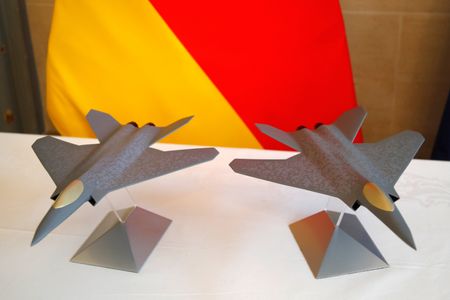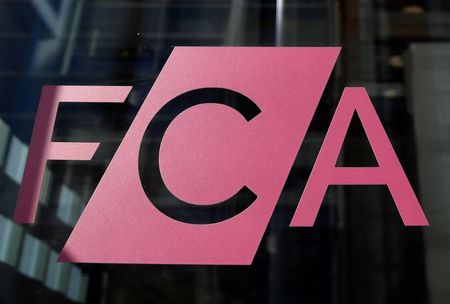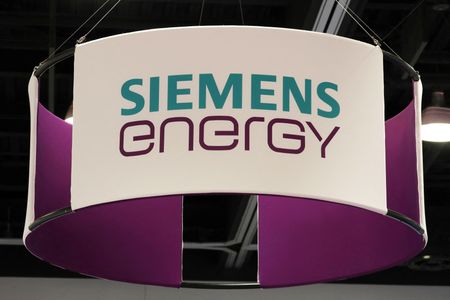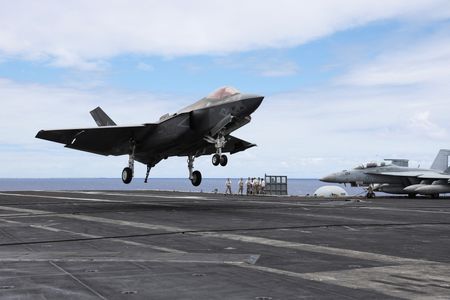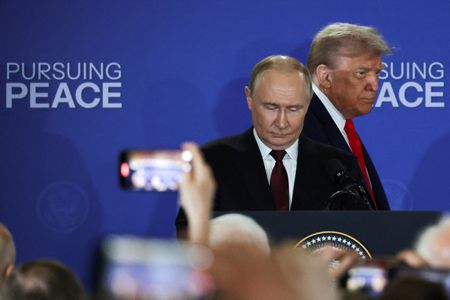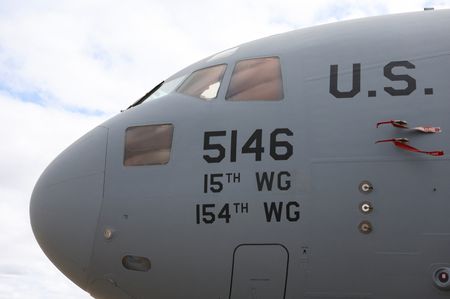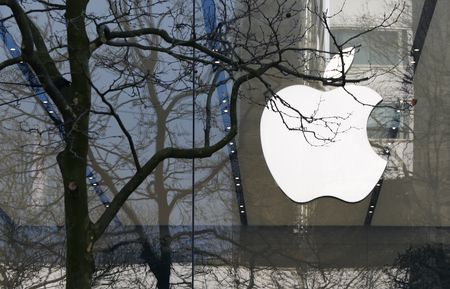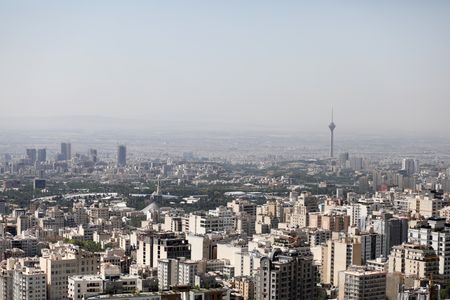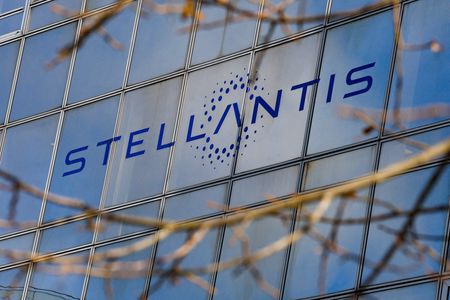By Sabine Siebold
BERLIN (Reuters) -French industry is blocking entry into the next phase in the development of the Franco-German fighter jet FCAS by demanding sole leadership of the project, the German defence ministry says in a document seen by Reuters on Tuesday.
In the document, sent to members of the German parliament’s budget committee on Friday, the ministry warns of severe consequences for the capabilities of the future fighter jet and the participation of German industry if concessions are granted to French industry.
Options for a solution will be worked out by the end of this year before a decision about further steps is taken, the ministry says in the document.
This timeline contradicts earlier statements that German Chancellor Friedrich Merz and French President Emmanuel Macron had agreed to try to find a solution by the end of August when both governments meet for consultations in Toulon, France.
The French defence ministry and the Elysee Palace did not immediately respond to a request for comment.
The FCAS project, with an estimated cost of more than 100 billion euros ($117.07 billion) and in which Spain is also a partner, has been plagued by delays and infighting over workshare and intellectual property rights between France and Germany, as well as their respective national industries.
France’s Dassault Aviation, Airbus and Indra are involved in the scheme to start replacing French Rafale and German and Spanish Eurofighters with a sixth-generation fighter jet from 2040.
But Berlin and Paris are at odds over the composition of the consortium. France has told Germany it wants a workshare of some 80% in FCAS, a defence industry source told Reuters in July.
The source added the differences risked jeopardizing the launch of the second phase of the program, the development of airworthy demonstrators, a step aimed for by the end of the year that would for the first time see a larger amount of money dispensed.
So far, tasks and workshare have been split up along specific pillars of the project, such as the development of the aircraft itself, the engine, the accompanying remote carrier and the air combat cloud, the digital backbone connecting the systems.
Merz later said France and Germany should stick to prior agreements on the configuration of the joint Franco-German FCAS project.
The document seen by Reuters did not specify a French company in its criticism but industry sources have been pointing their fingers at French warplane maker Dassault Aviation.
At the end of July, Dassault’s CEO Eric Trappier said FCAS needed clearer leadership and organisation as partners move towards a second phase, and that in practice, decisions over key parts of the current design phase were having to be cleared with Airbus, adding complexity and contributing to delays.
“They say Dassault is the leader but that all decisions must be taken between three (countries),” Trappier said.
Dassault, which is responsible for the core crewed fighter part of the project, declined to comment.
On Thursday, Macron is set to receive Merz for dinner at his Bregancon residence on the Mediterranean coast, with ministers joining the talks on Friday in nearby Toulon.
A French presidency official told reporters in a briefing on Monday the talks would touch upon the “slight” differences surrounding the fighter jet, adding there was a strong resolve by both sides to make the project work.
($1 = 0.8542 euros)
(Reporting by Sabine Siebold, additional reporting by John Irish, Tim Hepher and Elizabeth Pineau in ParisEditing by Madeline Chambers and Sharon Singleton)

